- Home
- Johnny D. Boggs
The Cane Creek Regulators Page 7
The Cane Creek Regulators Read online
Page 7
Footfalls came from behind her, but she didn’t turn, knowing it was the reverend.
“Miss Stewart,” he said, “I do not recall seeing any buckets of coal oil with us.”
She answered grimly, “That’s because nobody brought any.”
Several seconds ticked past before the Reverend Monteith chuckled. “Ah … I see …”
Emily shook her head in disgust.
“What will happen next?” the preacher asked.
“I doubt if anything will happen before dawn,” she said with a shrug.
So they waited. Emily spent the rest of the night staring at the cabin, the shadows, looking for her father, praying that he was—and would remain—unharmed.
* * * * *
Shortly after sunrise, the outlaws surrendered after Skeates assured them they would be transported to Charlestown where they would be turned over to the colonial authorities.
Five of the outlaws had been killed—three of them sentries caught outside the cabin, and two on the inside, who were carried out and dropped without ceremony onto the dirt. Two of the prisoners had suffered minor musket wounds. None of the regulators, as the Scot had named them, had been injured, although two of the horses had bolted away during the fight.
“A sorry lot,” Breck Stewart told Owen Devonald as the guards bound the prisoners’ hands with rawhide cords.
“Aye,” Devonald agreed as he put his pipe between his lips, studying the murderers.
Rags passed as clothing on these men. Two were Indians and three were negros. Runaway slaves, most likely, although the three men refused to say anything, refused even to lift their gaze from the ground. The leader of the group wore an eye patch and an earring. A man with a pirate’s beard laughed, but Emily knew this performance was nothing but a façade. He looked petrified.
“Where is the girl?” Devonald demanded.
Tilting his head, the bearded man jutted a firm jaw toward Emily, who had joined her father, Monteith, and Devonald. “Why there she is, sir. And a right fetching creature she is.”
The innkeeper slapped him hard across the check. “Damn your insolence, swine. I mean Bethan Jones.”
“I do not know that name.”
Another slap, but the man merely shrugged.
She could be anywhere, Emily thought to herself. Dumped into the swamps. Buried beneath pine straw. Sunk into the creek or Peedee River. Or, the men could be telling the truth. They could be innocent travelers. But Emily doubted that. She sighed. Poor Bethan Jones. Likely she’s dead, to be denied a Christian burial, denied the chance to rest for eternity with her family.
Allaway Skeates came over toward Emily, her father, the reverend, and Devonald.
“I thank you for your help, sir,” he said, and held out his hand toward Stewart.
“It was my duty, sir.”
“Mayhap this will convince the Assembly and the governor that what we claim is happening away from the tidewater is not the mere delusions of frightened settlers.”
“Mayhap it will.”
Emily detected little certitude in her father’s voice.
Skeates picked up on Stewart’s doubt. “Well, sir, we cannot just string them up from the highest limbs.”
“Can’t we?” Devonald said.
Monteith cleared his throat.
“Preacher,” the innkeeper said, “do not tax yourself, sir. We gave these scoundrels our word that we would take them to Charlestown and that is Allaway’s task.”
Stewart shook the Scot’s hand. “Fare thee well, sir.”
“Thank you, Mister Stewart,” Skeates said, then turned and bowed at Emily. “And thank you, girl.” Then to the parson, “Thank you, sir. Both of you showed grit.”
An hour later, Skeates led his guards and the prisoners down the trail, bound for Charlestown. For those that remained behind was left the job of burying the dead here before returning to Dogmael Jones’ cabin.
For a proper funeral.
Chapter Eight
Summer passed with a welcomed monotony for Emily. She spent most of her days helping her mother with chores, picking vegetables in the garden, cooking, cleaning, and grooming the two marsh tacky horses. Rarely did she walk down the Cherokee Path, and never alone. She found herself spending more time with Elizabeth, doting on her younger sister, even playing dolls with her—and Emily loathed playing dolls. After a few months, Emily stopped seeing the pale, dead face of Seren Jones whenever she looked at Elizabeth, and those nightmares that jerked her wide awake and in a cold sweat became rarer as the days shortened and the nights turned chillier.
Autumn also seemed to cool the temperatures of the men, including her father’s and her brother, Donnan’s. The fall arrived early, as both the long hunters and Cherokees had predicted. The bandits terrorizing the countryside lessened their raids, so eventually life returned to normal around Ninety Six.
She sat at a table outside the tavern with her mother, cleaning the last of the carrots from the garden, while Elizabeth and Alan played together nearby.
“Joseph Robinson is visiting today,” her mother said absently.
Emily scraped dirt off a crooked carrot, and shook her head. “If Da will let him in …” She stopped herself from slicing off the tip of a forefinger, realization almost knocking her off the bench. “What for?”
Without looking up from her bowl, Machara Stewart shrugged, but Emily saw the smile on her mother’s face.
“Da hates that cur,” Emily said.
This time her mother looked up. “Your father hates no one. They might not agree on everything, your father and Joseph, but …”
“Joseph! When did you become so familiar with that pompous Virginian?”
Her mother removed the bowl from her lap, and set it on the table. “He brings business,” she said sharply, “to this tavern.”
“Too much business.”
“Now … Emily.”
“Joseph Robinson is such a gillygaupus.” Actually he was more of a king-loving son of a bitch than just an awkward jerk. Emily, however, refrained from telling her mother all of that. She stood, the heat rising in her face, and turned. Alan and Elizabeth looked up from the ground, a lead soldier in Alan’s hand and Elizabeth’s mouth hanging open. Their eyes locked on Emily, and she quickly looked back at her mother.
“I do not like Joseph Robinson,” she said.
Machara grinned. “Truth be told, Emily, I did not think much of your father when he first called on me.”
Whirling, Emily looked for some way to escape. The fishing poles leaned against the house, left yesterday by Donnan and two of his friends. No bait bucket, but she knew where to find earthworms. She tossed her knife onto the table, and went straight to the wall, grabbing all three poles and marching back toward her young siblings.
“Let us go,” she told Alan and Elizabeth.
“Where?” Elizabeth said, but Alan dropped the toy and leaped to his feet. “Fishing?” he yelled.
“Yes.” She did not dare look at her mother, for Emily knew she would be sitting there, smugly grinning. “We are going fishing, Mum.”
All her mother said was, “Have fun. But be back in time for supper.”
* * * * *
They would never catch any fish, not the way Alan kept slapping the tip of his pole into Cane Creek, but Emily didn’t care. She sat on the bank, keeping an eye on Elizabeth, who had about as much interest in fishing as Emily herself.
Of course, she had barely gotten half a mile from the settlement before she realized exactly where she was going. To Cane Creek. Which would carry her almost directly to the Robinson farm, but she was too stubborn to turn around and go somewhere else. Besides, she kept telling herself, it would turn out to be a great joke that while Joseph Robinson was drinking gin at Cormorant’s Rock, wondering where Emily Stewart was, she would be sitting
on the bank of Cane Creek barely a mile from his farm.
“Who is that?” said Elizabeth.
Quickly Emily reached underneath her apron, feeling for the ivory grips. Ever since that summer, she had carried the gold-finished pocket pistol whenever she left Ninety Six. She felt only some relief when she saw who it was. She stood, trying to swallow, but her throat had turned to sand. She let go of the pistol, and brushed the bangs off her forehead.
“It is he who saved you,” Elizabeth said.
“Yes,” Emily said as she watched Go-la-nv Pinetree paddle his canoe toward the bank.
She seemed rooted to the ground, just watching as the giant dugout canoe glided across the water until it brushed up against the bank. Elizabeth had dropped her pole and moved behind Emily, clutching the folds of her skirt. Alan stood unmoving, mouth open as Pinetree climbed out of the canoe.
“Osiyo,” he said, but no one responded to his greeting.
He cocked his head, and Emily tried to find her voice, but couldn’t. From behind her, Elizabeth whispered, “Hello.”
Pinetree nodded. “Good. You can talk.” He had switched to English.
“I can talk, too!” Alan snapped.
Emily just bowed.
Pinetree wore a cotton shirt, deerskin leggings, moccasins, a beaded belt, and a blanket over his shoulder. Earrings covered the rims of both ears, and two feathers were tied at the crown of his head. She smelled bear grease on him, probably coming from the canoe to keep the vessel watertight.
Pinetree turned to Alan. “Fish biting?”
“No. I think they’re asleep.”
Emily thought, How can they sleep with as much noise as you’ve been making, Brother?
“Hmm. Sometimes, my people poison the water and scoop up the fish when they rise to the top.”
Emily was surprised, never having heard Pinetree mutter much more than a few syllables fluently. In fact, he seemed far more capable of speech than she at this minute.
Alan made a face. “You eat poisoned fish?”
Go-la-nv Pinetree shrugged.
“I am hungry,” whined Elizabeth, still hiding behind Emily’s skirt.
Pinetree pointed to his canoe. “In that pouch you will find chestnuts and sunflower seeds.” He looked back at Emily. “It is not much.”
Alan was already climbing into the big canoe, grabbing the pouch, and filling his mouth with nuts before he was back on solid land. He walked right past Go-la-nv Pinetree and brought the leather pouch to his baby sister, holding it open for her.
“Have you forgotten your manners, Alan Stewart?” Emily said, proving that she could speak.
“No, ma’am,” Alan said, spraying the remnants of seed and chestnuts out of his mouth and on to Emily’s skirt.
She cut loose with a string of profanity. Then she was on her knees, pulling her brother and sister close, telling them how sorry she was, that she hadn’t meant what she said, and begging them to please stop crying.
“Alan,” said Go-la-nv Pinetree.
Emily watched as her brother slipped away from her and turned toward the young Indian.
“Have you ever shot a Cherokee blowgun?”
Alan’s head shook.
Pinetree smiled. “Would you like to?”
“Can I?” Alan asked, wiping away the tears and sniffing.
The Cherokee gestured toward Emily, who said, “Of course.”
Then Elizabeth backed away from Emily, and said, “Can I shoot that gun, too?”
Later, Emily lay on the leaves, head cradled in her hands, staring at the trees, the blue sky, but mostly at Go-la-nv Pinetree, who leaned against an elm tree, carving what appeared to be a flute for Elizabeth and Alan. Her two siblings were back fishing, laughing, and this time Alan wasn’t beating the water with his pole.
“You should return home,” Pinetree said without looking up.
She sighed.
“You should not have come here alone. It is dangerous,” he said.
Then he tested the flute. It made a pretty sound, Emily thought, though her brother and sister could not hear it because of their laughter.
“And I do not think you will catch any fish today.”
Smiling, she pushed herself into a seated position. “What does Go-la-nv mean?” she asked.
He tested the flute again, then dropped it by his side. “Raven.” He pointed at the trees, probably to the nest she had seen.
“I know what a raven is,” she said.
His head shook. “You have a temper.”
“You do not want to see me angry. You …” She turned away, remembering that summer day in the forest. Biting her lip, she tried to shake away that image of Blubber Cheeks with his head split open. She found herself starting to breathe hard, those memories coming back in a full assault. Running through the forest. Eye Patch and the Indian. Then that evening down on the Welsh Neck, and finding …
I will not cry. Emily squeezed her eyes shut, and when she opened them again, Go-la-nv Pinetree was kneeling beside her.
His eyes looked like midnight, but she found a softness in them, concern. He was so close to her, it unnerved her, and she started shifting away from him, realizing almost at the same moment that he was inching away from her.
She stopped. He stopped. They stared at each other.
“What …?” Emily wasn’t sure where to begin, or even what she wanted to say. “That day … last summer … in the woods … when …”
“You should not think of such things,” he said.
Her head shook. “What were you doing?”
His head tilted, mouth slightly open. He muttered something in Cherokee, then said, “I do not know what you mean.”
“What were you doing?” she repeated. “In the woods?”
“Hunting,” he said.
“That close to Ninety Six?”
The softness drained from his eyes, replaced with an intensity that frightened her. “I was not with those men,” he said.
“I never thought you were,” she said. She looked past him, remembering to keep an eye on Alan and Elizabeth, but they were preoccupied, trying to splash all the water out of Cane Creek into Go-la-nv Pinetree’s canoe.
“I was … hunting,” he repeated.
Hunting? She tried to hold his eyes, but she had to look away. Hunting? That close to the settlements? Where most of the game had already been trapped out or run off? There are birds about, maybe a brave squirrel or rabbit, but … no, a Cherokee would not be hunting game. Not there.
He stared at her.
“And what brings you here today?” Emily asked.
He looked up at the crow’s nest in the tree, wet his lips, and seemed to shiver before he looked back at her. This time it was Go-la-nv Pinetree who looked away.
She felt weak, and did not like the feeling. She remembered, a year or two ago, when Rachel Rowe had told her, “You are the strongest girl I have ever known. Stronger than any woman in Keowee, I would allow.”
Cherokee women were always strong.
“I …” she began, but he held up his hand, and she stopped herself from saying anything else.
“You should go now,” he said. “Before it gets too late.”
He picked up the flute, tossed it to her, and moved toward his canoe. He got in without speaking to Alan and Elizabeth, who had stopped what they were doing to stare at him as he picked up a paddle.
“Damn,” he said in English. “Hell. Son of a bitch.”
“Mother threatens to wash Emily’s mouth out with soap when she says those words,” Elizabeth told him.
“She says them all the time, too,” Alan added.
Go-la-nv Pinetree crawled back out of the canoe, this time bringing his bow and quiver of arrows with him. “I cannot leave you alone. It grows late,” he said. “I will make
sure you get home safely.”
Emily showed him the ivory-handled pistol. “I can look out for us.”
“This I know.”
“She’s meaner than a witch,” Alan said.
“No.” Go-la-nv Pinetree ran his long fingers through the boy’s hair. “You have a fine sister. Brave. Very brave. She takes care of you.” He pointed to the trail. “We go.”
The sun was sinking by the time they reached the settlement. Three horses were hobbled out front of the tavern. Emily could hear laughter and someone playing a Jew’s harp inside. She found herself studying the horses, the saddles, trying to remember just what kind of horses Joseph Robinson owned. Several rods from the tavern, Go-la-nv Pinetree stopped.
“I go now,” he said.
“Thanks for the flute,” Elizabeth said.
“And for the nuts,” Alan added.
His face was a mask now. He nodded at the kids, then turned to Emily. Neither said anything. He walked away.
“I’m hungry,” Alan said.
“Those nuts didn’t fill my tummy,” Elizabeth said.
Emily didn’t respond. She kept watching Go-la-nv Pinetree until he turned around the bend, and disappeared. Then a sigh escaped, and, full of dread, she turned around to steer her brother and sister toward Cormorant’s Rock.
* * * * *
“Da likes him,” Emily said.
Donnan grunted and said, “For the deerskins he brings. For the food. And the drink he taught Da how to make.”
She knew that drink, made up of cross vine, China brier, and sassafras roots boiled together for some Cherokee medicine. “Purifies the blood,” her father would say, smacking his lips after drinking. When Emily had tasted it, she deemed it even worse than some of the beverages her father had concocted to sell to wayfarers.
Emily said, “You forget …”
“You forget,” Donnan interrupted, “that he’s a Cherokee. And you are white. And you don’t remember that damned war, because Da sent you away. You weren’t here. You didn’t almost die in that damnable stockade.”
His words silenced her, and she knew she never should have broached the subject of Go-la-nv Pinetree with her brother.

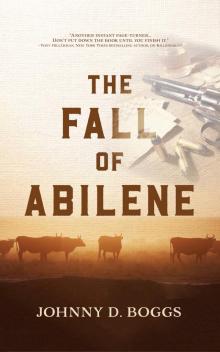 The Fall of Abilene
The Fall of Abilene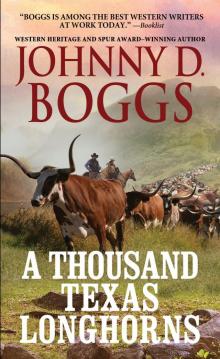 A Thousand Texas Longhorns
A Thousand Texas Longhorns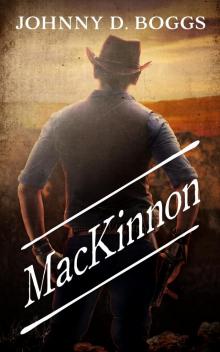 MacKinnon
MacKinnon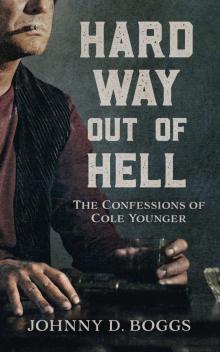 Hard Way Out of Hell
Hard Way Out of Hell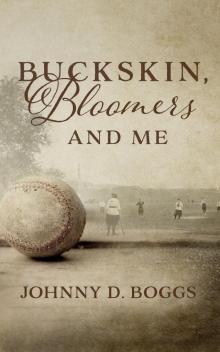 Buckskin, Bloomers, and Me
Buckskin, Bloomers, and Me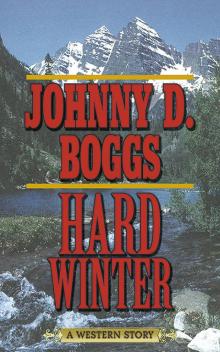 Hard Winter
Hard Winter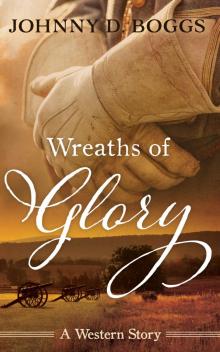 Wreaths of Glory
Wreaths of Glory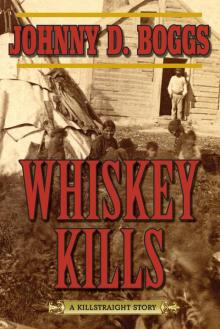 Whiskey Kills
Whiskey Kills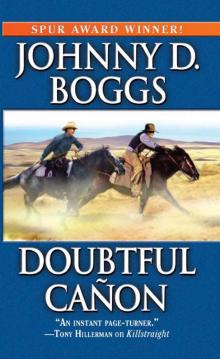 Doubtful Canon
Doubtful Canon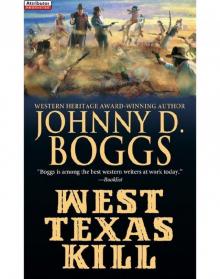 West Texas Kill
West Texas Kill The Killing Shot
The Killing Shot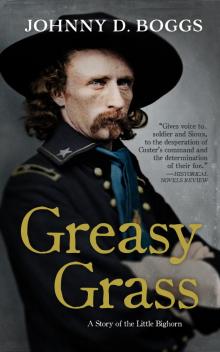 Greasy Grass
Greasy Grass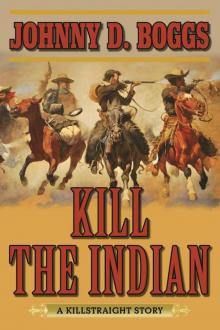 Kill the Indian
Kill the Indian Return to Red River
Return to Red River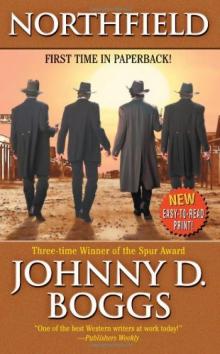 Northfield
Northfield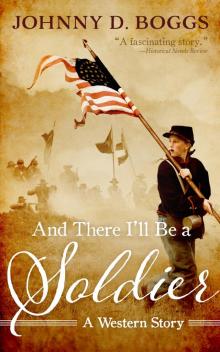 And There I’ll Be a Soldier
And There I’ll Be a Soldier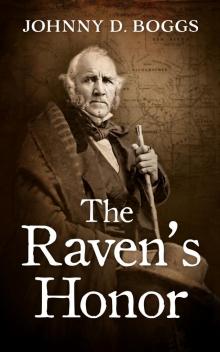 The Raven's Honor
The Raven's Honor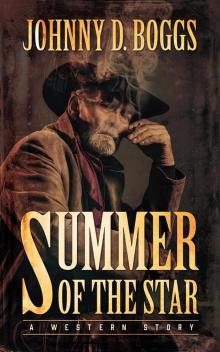 Summer of the Star
Summer of the Star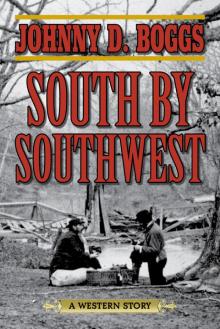 South by Southwest
South by Southwest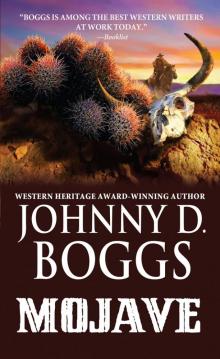 Mojave
Mojave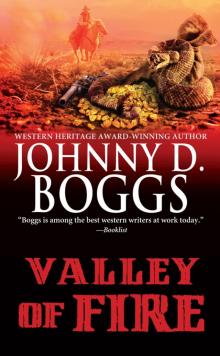 Valley of Fire
Valley of Fire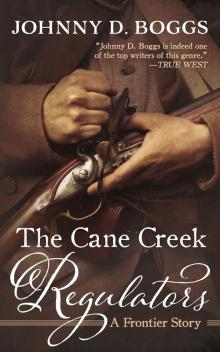 The Cane Creek Regulators
The Cane Creek Regulators